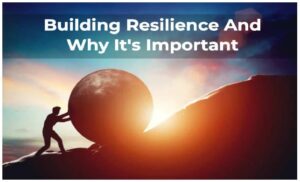EVERY FRUIT OF SUCCESS HAS A SEED OF DESTRUCTION EMBEDDED WITHIN IT

In the pursuit of success, individuals often fixate on the glory and triumph that accompanies their achievements. The fruits of success are sweet, and they captivate our attention with their allure. However, it is essential to recognize that behind every triumph lies a potential seed of destruction, a force that, if not acknowledged and managed, can lead to downfall. I, therefore, intend to delve into the dual nature of success, to shed light on the inherent risks and consequences that can arise when success is not accompanied by wisdom and balance. I wish to do so by sharing my own story at the start.
In 2015, a surge of inspiration surged through my being, igniting a profound desire within me. It was a sudden and intense longing to cultivate the land my beloved brother and sister owned in the enchanting village of Thaiyyur. A vision sprouted in my mind, one where I grew and exported bell peppers to the Middle East, reaping the rewards of my toil. Eager to turn this dream into a reality, I embarked on a journey that would forever alter the course of my life.

Driven by ambition, I approached the bank, seeking a loan to finance my venture. With the funds secured, I procured all the necessary equipment to create a controlled environment for growing bell peppers. Labour was enlisted, and I went ahead, importing robust seedlings that promised a bountiful harvest. The seeds of my agricultural passion had been sown, and I delved into farming as a side hustle, my heart filled with optimism.
As the seedlings began to flourish under my watchful eye, yielding plentiful harvests, a sense of complacency began to settle within me. I allowed myself to be swayed by the tides of success, reducing my trips to the farm and growing lax in my supervision. Little did I know that lurking within this veil of accomplishment lay the seeds of destruction, waiting to be awakened.
Fate had an unexpected twist in store for me. In the face of adversity, nature struck a merciless blow. A pest infestation attacked my crops, threatening their very existence. And then, as if orchestrated by the heavens, a cyclone unleashed its fury upon Chennai. The storm winds tore through the greenhouses, leaving them in ruins. Torrential rains submerged the land, mercilessly washing away the fruits of my labour. In an instant, nearly 70 percent of my dreams were shattered, and I found myself standing amidst the wreckage, forced to abandon my cultivation.
Amid this heart-wrenching setback, I learned a profound lesson—one that resonated with the very essence of life itself. Every success, it dawned upon me, carries within it the potential for downfall. It can take the form of fierce competition, the treacherous trap of complacency, or even the seeds of self- sabotage. The story of my farming journey served as a powerful reminder that humility, vigilance, and an unwavering commitment to growth are essential to withstand the storms that life may unleash.
Yet, within the ruins of my shattered dreams, there remained a flicker of hope. For I realized that the true measure of resilience lies not in avoiding failure altogether but in how we choose to rise from its ashes. I resolved to rise once more, armed with newfound wisdom and an unyielding spirit. Undeterred by the trials I had endured, I sought solace in the fact that this journey had sculpted my character and fortified my determination.

Life has a way of teaching us its most profound lessons through the crucible of our experiences. As I reflect upon my journey from ambitious dreams to humbling defeat, I find solace in knowing that the seeds of my resilience were planted amidst the ruins of my aspirations. The story of my bell pepper farm serves as a timeless reminder that success is but a fragile companion, and it is in the face of adversity that our true strength emerges.
I wish that the tale narrated by me here touches the hearts of those who read it, resonating within their souls and reminding them that the path to greatness is paved with both triumph and tribulation. For in the delicate balance between success and failure, we discover the profound wisdom that propels us ever forward on the journey of life.
We know that success has an irresistible appeal, drawing individuals towards its promises of fulfilment, recognition, and material rewards. It fuels ambitions, drives innovation, and inspires individuals to push beyond their limits. The stories of great entrepreneurs like Elon Musk, Steve Jobs, and Bill Gates exemplify the heights that can be reached through relentless pursuit and unwavering determination.
Behind every success story lies the potential for destruction. While success can bring prosperity and acclaim, it can also give rise to arrogance, complacency, and ethical dilemmas. The intoxicating taste of accomplishment can blind individuals to the risks and pitfalls that lie in waiting. Real-life examples such as Enron, Lehman Brothers, and Satyam Computers serve as stark reminders of how unchecked success can lead to catastrophic consequences, causing harm not only to individuals but also to entire organizations and societies.

The Western world, with its emphasis on individual achievement and materialistic pursuits, provides a fertile ground for exploring the seed of destruction within success. The dot-com bubble of the late 1990s and the subsequent burst in 2000 showcased how unchecked optimism and speculative investments led to widespread financial devastation. The rise and fall of companies like Enron and WorldCom exposed the ethical lapses and fraudulent practices that can permeate corporate culture in the pursuit of financial gain.
India, a country with a rich tapestry of success stories, presents a unique perspective on the dual nature of success. The rise of high-profile businessmen and industrialists like Vijay Mallya, Nirav Modi, and Subrata Roy highlights the dangers of unchecked ambition, financial irregularities, and a disregard for ethical practices. These cases illustrate how success, when accompanied by a lack of integrity and accountability, can lead to personal ruin, tarnished reputations, and systemic failures.
To mitigate the destructive tendencies that success can unleash, individuals and societies must embrace a sense of wisdom, responsibility, and balance. Success should not be pursued at the expense of ethical principles, societal well-being, or personal relationships. Cultivating humility, practising empathy, and fostering a culture of integrity are essential ingredients in harnessing success without succumbing to its destructive potential. Examples of individuals like Ratan Tata, Azim Premji, and Indra Nooyi exemplify how success, when accompanied by a strong moral compass, can lead to positive change and sustainable growth.

In the grand tapestry of life, success and its potential for destruction coexist in intricate harmony. By recognizing the inherent risks and consequences that success can bring, individuals can navigate the path towards achievement with wisdom, responsibility, and humility. Real-life examples from both abroad and India serve as cautionary tales, urging us to embrace success with a balanced perspective and a commitment to ethical practices. By sowing the seeds of integrity and accountability alongside our aspirations, we can ensure that the fruits of success are not tainted by greed, hubris, or moral bankruptcy. The road to success is strewn with challenges and temptations, but by treading carefully and cultivating a sense of purpose beyond personal gain, we can unleash the true potential of success without succumbing to its destructive forces.

It is essential to remember that success is not solely measured by material wealth or professional achievements. True success encompasses personal growth, meaningful relationships, and a positive impact on society. It is a holistic pursuit that demands introspection, self-awareness, and a commitment to one’s values.
To mitigate the seed of destruction within success, individuals must embrace continuous learning and self-improvement. They should foster a growth mindset that allows for adaptability and innovation, ensuring that success does not lead to complacency or stagnation. By staying grounded and open to feedback, successful individuals can address their weaknesses and blind spots, cultivating resilience and avoiding the pitfalls that could ultimately undermine their achievements.
Institutions and organizations also play a crucial role in mitigating the destructive tendencies of success. By promoting a culture of transparency, accountability, and ethical governance, companies can create an environment that encourages responsible decision-making and mitigates the risks of corruption and misconduct. Implementing robust systems of checks and balances, prioritizing employee well-being, and fostering a diverse and inclusive workforce are essential steps toward maintaining a healthy balance between success and its potential destruction.
Furthermore, education and mentorship programs have a pivotal role in shaping future generations of successful individuals. By instilling ethical values, social responsibility, and a broader understanding of success beyond material gains, educational institutions can equip young minds with the tools to navigate the complexities of achieving success while avoiding its pitfalls. Mentorship programs can provide guidance, wisdom, and perspective, helping aspiring individuals strike a balance between ambition and integrity.

In conclusion, every fruit of success carries within it a seed of destruction. The allure and temptations of success can blind individuals to the risks and consequences that lie beneath its surface. Real-life examples, which I have narrated here both from abroad and in India, should serve as cautionary tales, reminding us of the importance of humility, ethical conduct, and responsibility in the pursuit of success. By embracing wisdom, accountability, and a holistic perspective on achievement, individuals and societies can navigate the path to success while avoiding its potential pitfalls. Success, when balanced with integrity and a commitment to societal well-being, becomes a force for positive change, personal growth, and sustainable progress. Let us sow the seeds of wisdom and responsibility alongside our aspirations, ensuring that the fruits of success are nourished by principles that elevate not only ourselves but also the world around us.
 Dr K. Jayanth Murali is a retired IPS officer and a Life Coach. He is the author of four books, including the best-selling 42 Mondays. He is passionate about painting, farming, and long-distance running. He has run several marathons and has two entries in the Asian book of Records in full and half marathon categories. He lives with his family in Chennai, India. When he is not running, he is either writing or chilling with a book.
Dr K. Jayanth Murali is a retired IPS officer and a Life Coach. He is the author of four books, including the best-selling 42 Mondays. He is passionate about painting, farming, and long-distance running. He has run several marathons and has two entries in the Asian book of Records in full and half marathon categories. He lives with his family in Chennai, India. When he is not running, he is either writing or chilling with a book.
